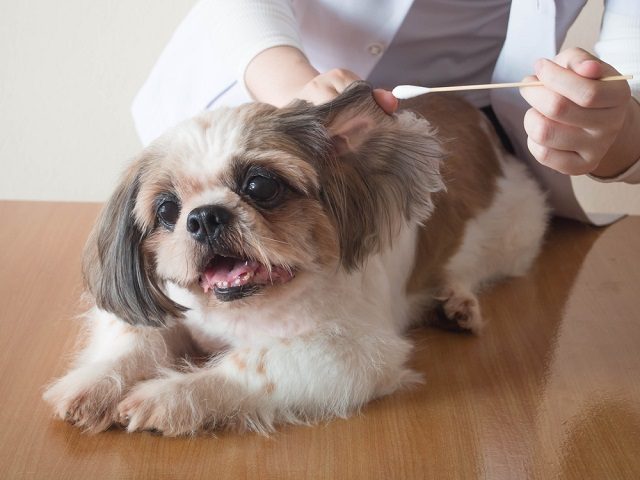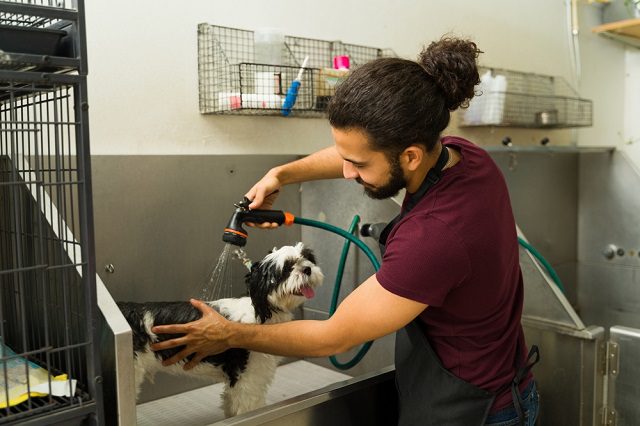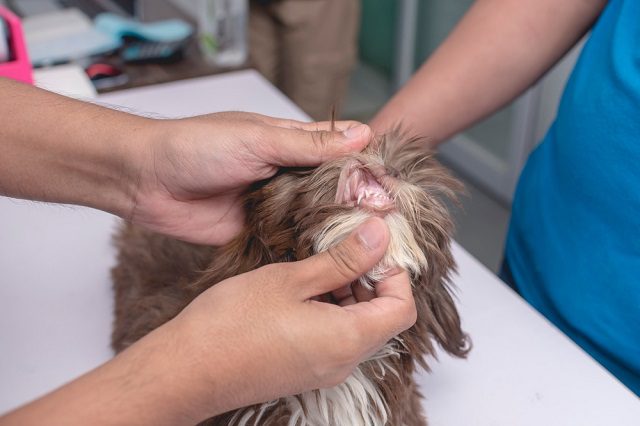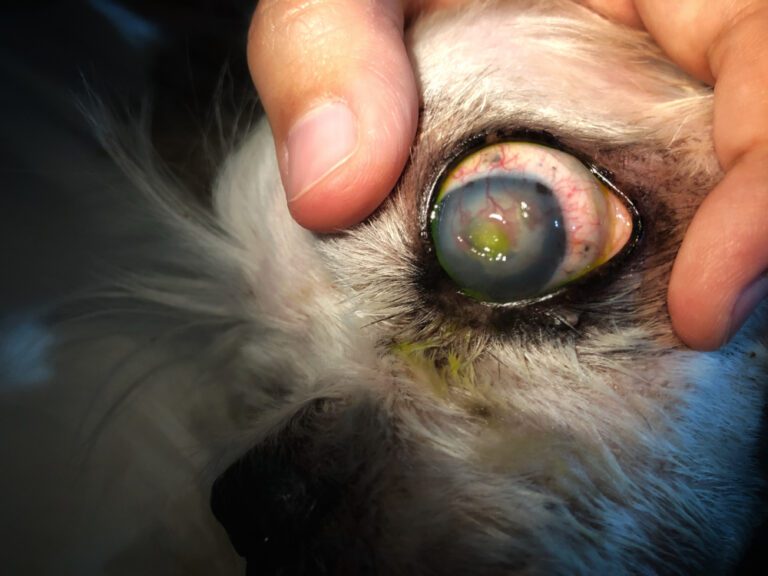Yeast Infections In Shih Tzus: A Comprehensive Guide
With their distinctive appearance and lively personality, Shih Tzus make excellent companions for pet owners. However, like all breeds, they can face health challenges, and one common issue that Shih Tzu owners may encounter is yeast infections. These infections can be uncomfortable for your furry friend and require prompt attention for effective management.
This comprehensive guide will delve into diagnosing and treating yeast infections in Shih Tzus. From understanding the causes of these infections to exploring symptoms that may indicate a problem, we aim to equip pet owners with the knowledge needed to ensure the well-being of their beloved Shih Tzus.
Yeast infections in Shih Tzus can manifest in various ways, affecting their ears, skin, and other areas. Responsible pet owners must be vigilant and proactive in identifying the signs of a yeast infection to provide timely and appropriate care.
Join us as we explore the intricacies of Shih Tzu yeast infections, offering insights into prevention strategies, at-home care tips, and when to consult a veterinarian for professional assistance. Your Shih Tzu’s health and happiness are our top priorities, and by the end of this guide, you’ll be well-equipped to navigate the world of diagnosing and treating yeast infections in your beloved canine companion.
What causes yeast infections in Shih Tzus?
The causes of yeast infections in Shih Tzus are paramount for effective prevention and treatment. While these infections can be bothersome, they are often a result of various factors that pet owners can address with diligence and care.
Facial Structure and Skin Folds
Shih Tzus’ distinctive facial structure, characterized by folds and creases, creates a warm and moist environment conducive to yeast overgrowth.
Ear Anatomy
The long, floppy ears of Shih Tzus can trap moisture, making the ear canal susceptible to yeast infections.
Dietary Factors
The role of diet in yeast infections – high carbohydrate intake may increase susceptibility, as yeast thrives on sugar.
Underlying Health Conditions
Conditions like allergies, hormonal imbalances, and weakened immune systems can contribute to Shih Tzus’ vulnerability to yeast infections.
Environmental Factors
Humidity and inadequate grooming contribute to yeast infections; maintaining proper hygiene and a dry living environment is crucial.
By exploring these subheadings, pet owners can understand the multifaceted factors contributing to yeast infections in Shih Tzus, allowing them to implement proactive measures for prevention and optimal canine health.
Recognizing the symptoms of a yeast infection in your Shih Tzu
Identifying the early signs of a yeast infection in your Shih Tzu is crucial for prompt intervention and effective management. These infections can manifest in various ways, impacting different areas of your pet’s body. By staying vigilant and observant, you can ensure your furry friend receives the care they need when it matters most.
Skin Irritation and Redness
Yeast infections often lead to skin irritation and redness. Watch for changes in your Shih Tzu’s skin, particularly in areas with skin folds.
Persistent Scratching and Licking
Excessive scratching or licking, especially in specific areas like the paws or ears, may indicate discomfort caused by a yeast infection.
Unpleasant Odor
A distinct, unpleasant odor emanating from your Shih Tzu’s ears or skin could indicate a yeast infection, significantly if regular grooming practices do not alleviate the smell.
Changes in Ear Discharge
An abnormal ear discharge, such as a dark, waxy substance, could indicate a yeast infection affecting the ear canal.
Changes in Behavior
Yeast infections may cause changes in your Shih Tzu’s behavior. Look for signs of lethargy, irritability, or a reluctance to be touched in specific areas.
Paw Chewing
Excessive chewing or licking of the paws may respond to discomfort caused by a yeast infection.
Pet owners should regularly groom and thoroughly inspect Shih Tzu’s skin and ears. If any of these symptoms are observed, it is advisable to consult with a veterinarian promptly. Early detection and intervention play a crucial role in successfully treating yeast infections, ensuring the well-being and comfort of your cherished Shih Tzu.
Getting a proper diagnosis for your Shih Tzu’s yeast infection
An accurate diagnosis is pivotal in effectively addressing and treating your Shih Tzu’s yeast infection. While recognizing symptoms is the first step, consulting with a veterinarian is crucial for a comprehensive evaluation and a tailored treatment plan.
Veterinary Examination
Schedule a thorough veterinary examination to assess the extent of the yeast infection. The vet will examine affected areas, such as the skin folds, ears, and other potential areas of concern.
Laboratory Tests
In some cases, the vet may recommend laboratory tests, such as skin swabs or ear cultures, to identify the specific strain of yeast causing the infection. This information aids in selecting the most effective treatment.
Allergy Testing
Allergies can contribute to yeast infections. Your veterinarian may suggest allergy testing to identify any underlying allergic reactions that could exacerbate the condition.
Physical Examination
A comprehensive physical examination helps the veterinarian assess your Shih Tzu’s overall health and identify any concurrent issues affecting their immune system.
Review of Medical History
Providing a detailed medical history of your Shih Tzu, including any previous skin or ear issues, helps the vet understand the context of the current infection and tailor a suitable treatment plan.
Diagnostic Imaging
In some instances, diagnostic imaging, such as X-rays or ultrasounds, may be recommended to rule out any internal factors contributing to the yeast infection.
Collaborating closely with your veterinarian ensures a precise diagnosis, allowing for targeted and effective treatment. Once the underlying cause and specific type of yeast are identified, the vet can recommend appropriate medications, lifestyle adjustments, and preventive measures to manage and mitigate future yeast infections in your Shih Tzu.
Treating a Shih Tzu yeast infection: a step-by-step guide
Effectively managing a yeast infection in your Shih Tzu involves a comprehensive and systematic approach. From prescribed medications to at-home care, here is a step-by-step guide to help pet owners navigate treatment and restore their furry friend’s comfort.
Prescription Medications
To eliminate the yeast infection, your veterinarian may prescribe antifungal medications, such as topical creams, ointments, or oral drugs. Ensure strict adherence to the prescribed dosage and duration.
Topical Treatments
Applying prescribed topical treatments directly to affected areas, especially in skin folds or ears, helps target yeast overgrowth locally.
Medicated Shampoos
Medicated shampoos with antifungal properties can be beneficial in managing skin-related yeast infections. Follow your veterinarian’s recommendations for frequency and application.
Ear Cleaning Solutions
Your vet may recommend specific ear-cleaning solutions for yeast infections affecting the ears. Regular cleaning helps prevent the recurrence of infections and maintains ear health.
Dietary Adjustments
Modify your Shih Tzu’s diet as per your veterinarian’s guidance. A diet low in carbohydrates and high in quality nutrients can help create an environment less conducive to yeast growth.
Allergy Management
Addressing and managing allergic reactions may be crucial for long-term prevention if allergies contribute to yeast infection. Your vet may suggest allergy medications or dietary changes.
Environmental Changes
Ensure a clean and dry living environment for your Shih Tzu. Regular grooming, including cleaning skin folds, helps prevent the accumulation of moisture that fosters yeast growth.
Follow-up Veterinary Visits
Schedule follow-up visits with your veterinarian to monitor your Shih Tzu’s progress. Adjustments to the treatment plan may be necessary based on your pet’s response to the initial interventions.
Preventive Measures
Implement preventive measures to reduce the likelihood of future yeast infections. This may include regular grooming, a balanced diet, and addressing potential allergens in your Shih Tzu’s environment.
Following this step-by-step guide and collaborating closely with your veterinarian can effectively treat your Shih Tzu’s yeast infection and establish a proactive approach to their overall health and well-being.
Preventing future yeast infections in your Shih Tzu
Prevention plays a pivotal role in ensuring the long-term health and comfort of your Shih Tzu, especially when it comes to recurrent yeast infections. Implementing proactive measures can significantly reduce the likelihood of future infections and contribute to your pet’s overall well-being.
Regular Grooming
Establish a consistent grooming routine to keep your Shih Tzu’s coat clean and excess moisture-free. Pay special attention to areas with skin folds, ensuring thorough drying after baths.
Ear Maintenance
Regularly inspect and clean your Shih Tzu’s ears to prevent the buildup of moisture and wax. Use veterinarian-approved ear cleaning solutions and seek professional advice if you notice any abnormalities.
Balanced Nutrition
Provide a well-balanced and nutritionally sound diet for your Shih Tzu. Opt for high-quality dog food that meets their specific dietary needs, and consult with your vet about any necessary dietary adjustments.
Limited Carbohydrates
Limit the intake of carbohydrates in your Shih Tzu’s diet, as yeast thrives on sugar. Consult your veterinarian to choose a diet that supports your pet’s health and minimizes the risk of yeast overgrowth.
Allergy Management
If your Shih Tzu has known allergies, work closely with your veterinarian to manage them effectively. Addressing allergies can help prevent conditions that may contribute to yeast infections.
Adequate Exercise
Regular exercise promotes overall health and strengthens your Shih Tzu’s immune system. Tailor the exercise routine to your pet’s age and energy levels to ensure a healthy and active lifestyle.
Environmental Considerations
Create a dry and comfortable living environment for your Shih Tzu. Monitor indoor humidity levels and address any potential sources of dampness to discourage yeast growth.
Routine Veterinary Check-ups
Establish a routine of consistent veterinary check-ups to keep a close eye on your Shih Tzu’s health. These visits allow early detection of any potential issues and enable your vet to provide personalized advice on preventive care.
Watch for Early Signs
Stay vigilant for early signs of yeast infections, such as changes in behavior, skin redness, or ear discomfort. Prompt recognition allows for immediate intervention and prevents the escalation of the infection.
By incorporating these preventive measures into your Shih Tzu’s care routine, you can create a supportive environment that minimizes the risk of yeast infections. Consistent attention to grooming, nutrition, and overall health will contribute to the happiness and well-being of your cherished canine companion.
Consulting a veterinarian for professional advice
When faced with concerns about your Shih Tzu’s health, seeking professional advice from a veterinarian is paramount. A veterinarian has the knowledge and expertise to accurately diagnose and provide tailored solutions for your pet’s needs.
Early Intervention
Consulting a veterinarian at the first signs of a yeast infection is crucial for early intervention. Timely treatment can prevent the infection from worsening and alleviate your Shih Tzu’s discomfort.
Accurate Diagnosis
Veterinarians employ various diagnostic tools, including physical examinations, laboratory tests, and medical history reviews, to accurately diagnose the type and extent of the yeast infection. Accurate precision is crucial for ensuring effective treatment.
Customized Treatment Plans
Each Shih Tzu is unique, and a veterinarian can devise a customized treatment plan based on your pet’s specific needs and health considerations. This ensures that the treatment is tailored to address the root cause of the yeast infection.
Medication Management
Veterinarians can prescribe appropriate medications, such as antifungal treatments, and guide their proper administration. They can also monitor your Shih Tzu for potential side effects and adjust the treatment plan accordingly.
Preventive Care Recommendations
Beyond treating the immediate issue, veterinarians can offer valuable advice on preventive care measures. This may include recommendations for grooming routines, dietary adjustments, and environmental changes to minimize the risk of future yeast infections.
Professional Expertise
Veterinarians possess a wealth of knowledge in animal health and behavior. Consulting with a professional ensures you receive accurate information and guidance on managing your Shih Tzu’s overall well-being.
Routine Check-ups
Establishing a relationship with a veterinarian for routine check-ups is essential for ongoing pet care. Regular visits allow for proactive monitoring of your Shih Tzu’s health, enabling prompt identification and resolution of any emerging issues.
Emergency Situations
In severe symptoms or emergencies, a veterinarian can provide immediate assistance. Their expertise is invaluable in critical situations, ensuring the well-being of your Shih Tzu.
Holistic Approach
Veterinarians take a holistic approach to pet health, considering factors beyond the immediate symptoms. This comprehensive perspective helps address underlying issues and promote long-term wellness.
By consulting a veterinarian for professional advice, you invest in the health and happiness of your Shih Tzu. Their expertise and guidance will guide you through the diagnosis, treatment, and preventive care measures, fostering a solid and enduring bond between you and your cherished pet.
Conclusion
In conclusion, prioritizing your Shih Tzu’s health involves a combination of awareness, preventive measures, and timely professional intervention. Regular grooming, a balanced diet, and proactive monitoring for early signs of yeast infections are crucial aspects of responsible pet ownership.
Consulting a veterinarian for accurate diagnosis and tailored treatment ensures that your Shih Tzu receives the care it deserves. Adopting a holistic approach and incorporating preventive strategies will contribute to your beloved canine companion’s long-term well-being and happiness. Through these efforts, you can create a supportive environment that fosters optimal health for your Shih Tzu, allowing you both to enjoy a fulfilling and lasting companionship.










